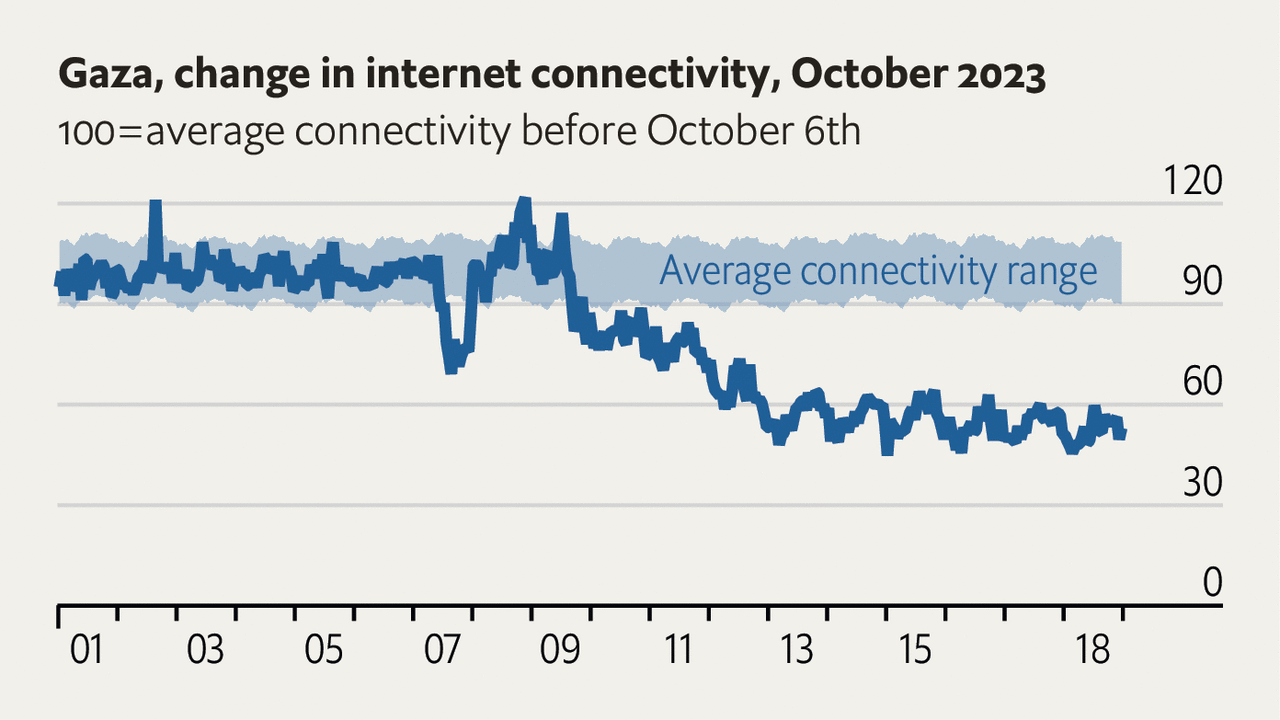To read more about The Economist’s data journalism, visit our graphic details page.
OOctober 9thIn response to a deadly attack on Israeli soil by Hamas, the Palestinian militants who rule Gaza, Israel tightened its blockade of the Gaza Strip. Internet connectivity, which has always been lower in Gaza than in the rest of the region, has declined significantly since the start of the current war (see chart). This poses a major challenge for civilians and aid workers, and limits Israel’s ability to communicate with Gazans.
Israel has tight control over Gaza’s internet infrastructure. Fiber optic cables to this strip pass through Israel. It has also banned technology upgrades that make connections more secure, meaning mobile internet providers there are limited to 2G. This is much slower than the 5G connection that most Israelis can access, compounding connectivity issues.
Since the start of the current conflict, Israeli airstrikes have crippled Gaza’s fragile communications infrastructure. Attempting repairs is fraught with danger. And on October 11, due to the Israeli blockade, Gaza’s only power plant ran out of fuel. This further reduced internet connectivity and also hit other critical infrastructure such as desalination plants.
The hit to connectivity in some districts is so severe that it is equivalent to a shutdown caused by a government order or a natural disaster. The hit to connection levels is higher than in Ukraine in the early weeks of the conflict last year. For some areas, the internet will actually be offline: mobile data and home broadband will not work. In other areas, the internet will be usable but slow. In places that used to have several functioning fiber optic cables and Internet service providers, there is now only one. Text messages may work depending on the provider or region, but audio and video will be very slow if they work.
Internet access takes on new importance during wartime. The UN monitors blackouts because they can cover human rights violations. The transmission of warnings is also critical: On October 10, the Israel Defense Forces used Facebook to warn residents of the Gaza neighborhood of al-Darraj about upcoming airstrikes. Without stable internet, it becomes harder for anyone to know what is going on.
#Gazans #rapidly #losing #access #Internet
Image Source : www.economist.com

